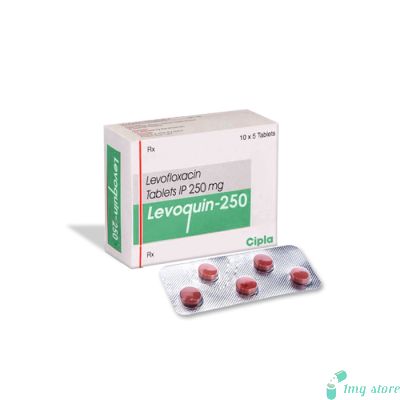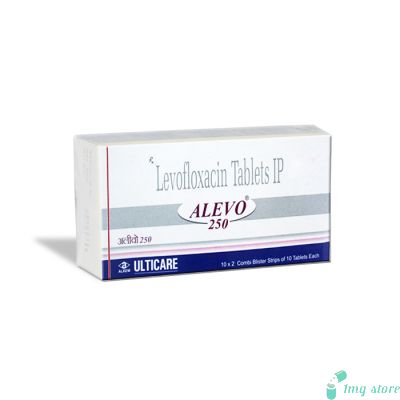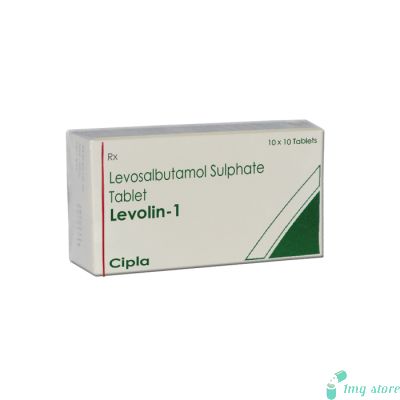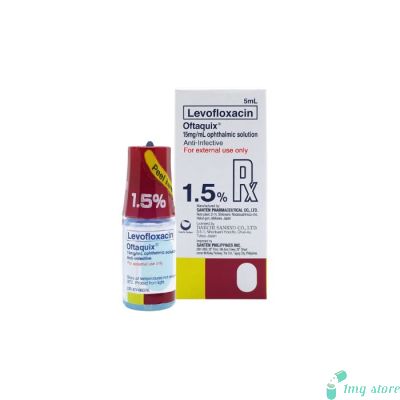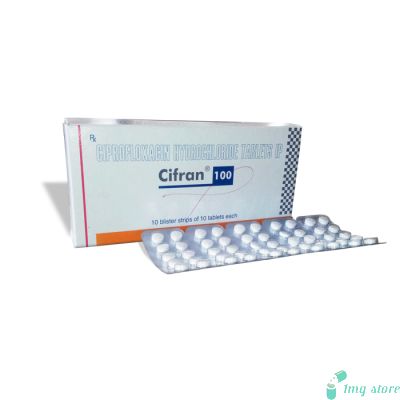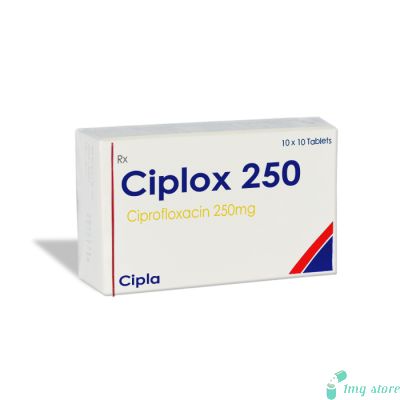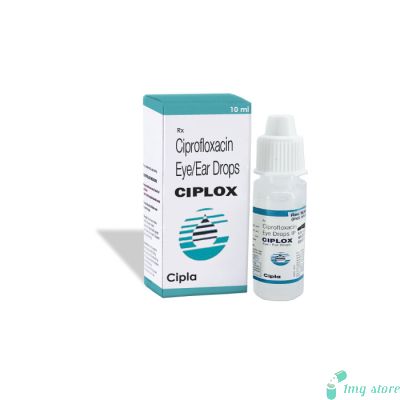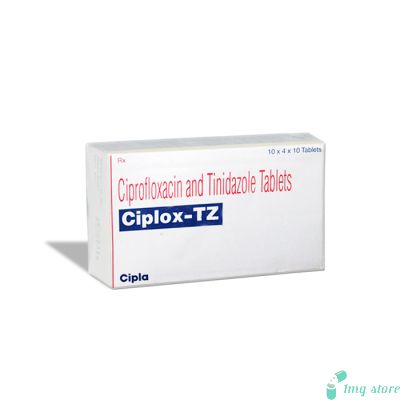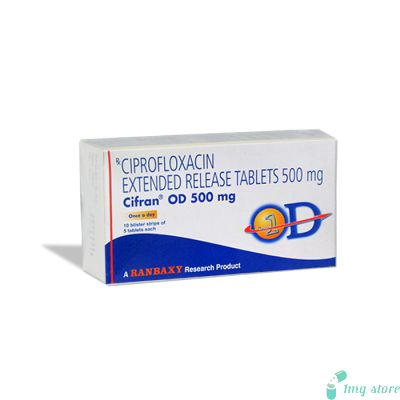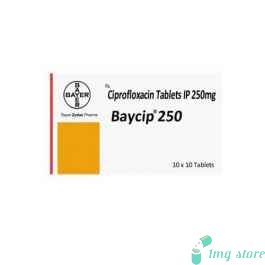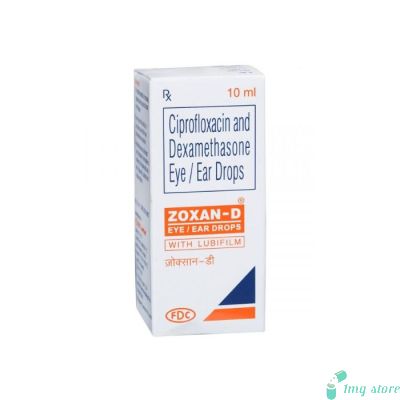Levoflox Tablet (Levofloxacin)
Buy Levofloxacin, is an antibiotic medication that belongs to the fluoroquinolone class of drugs. It is commonly sold under the brand name Levaquin, Quixin,and Levoflox. Levofloxacin is widely used to treat various bacterial infections in different body parts.
Introduction of Levoflox Tablet (Levofloxacin)
Levofloxacin is an antibiotic medication that belongs to the fluoroquinolone class of drugs. It is commonly sold under the brand name Quixin. Levofloxacin is widely used to treat various Bacterial Infections in different body parts. It works by inhibiting the growth and multiplication of bacteria, thereby aiding the body's natural defense mechanisms in fighting off the infection. This comprehensive guide provides detailed information about Levofloxacin Tablet, including dosage instructions, uses, potential side effects, precautions, drug interactions, and more.
Quixin Dosage Information:
The dosage of Levofloxacin Tablet (Levaquin) may vary depending on the specific infection being treated, the severity of the condition, and the patient's age and overall health. It is crucial to follow the prescribed dosage and directions provided by your healthcare provider or as indicated on the medication label. Generally, Levofloxacin is available in oral tablet form, with strengths ranging from 250 mg to 750 mg. The typical dosages for common infections are as follows:
- Respiratory Tract Infections: The usual dose for adults is 500 mg once daily for 7-14 days, depending on the severity of the infection.
- Urinary Tract Infections: The typical dose is 250 mg to 750 mg once daily for 3 days.
- Skin and Soft Tissue Infections: A typical dose is 500 mg once daily for 7-14 days.
- Pneumonia: The dose is often 500 mg to 750 mg once daily for 7-14 days.
- Sinus Infections: A common dose is 500 mg once daily for 10-14 days.
It is important to complete the full course of Levofloxacin even if symptoms improve before the medication is finished. Skipping doses or stopping the medication prematurely could lead to the development of antibiotic-resistant bacteria.
Levofloxacin Tablet Alternatives:
Several alternatives to Levofloxacin Tablets are available, each with its own set of benefits and limitations. Common alternatives include other fluoroquinolones like ciprofloxacin, as well as Antibiotics from different classes, such as amoxicillin or azithromycin. The choice of an alternative depends on the specific infection, bacterial susceptibility, patient's medical history, and potential interactions. Consulting a doctor helps determine the most appropriate alternative for an individual's condition.
Levofloxacin Tablet 500mg:
Levofloxacin Tablet 500mg is a medication commonly prescribed by healthcare professionals to treat bacterial infections. It belongs to the fluoroquinolone class of antibiotics and is effective against a wide range of bacteria. The 500mg dosage strength indicates the amount of active ingredient, levofloxacin, contained in each tablet. This antibiotic works by inhibiting bacterial DNA replication, thereby halting the growth and spread of the infection. It is crucial to follow your healthcare provider's instructions and complete the prescribed course to ensure optimal treatment outcomes and minimize the development of antibiotic resistance.
Levofloxacin Tablet Brand Names:
Levofloxacin Tablet is marketed under various brand names, depending on the pharmaceutical company producing it. Some common brand names for Levofloxacin Tablets include Levaquin, Tavanic, Levocin, Quixin, and Levox, among others. These brand names may vary by region and country. It's important to recognize the active ingredient, levofloxacin, regardless of the brand name, to ensure accurate and safe medication use.
Levofloxacin Tablet Overdose:
An overdose of Levofloxacin Tablet can have serious health consequences and should be avoided at all costs. Overdosing on this antibiotic may lead to increased side effects, such as nausea, vomiting, dizziness, confusion, and even potential damage to the kidneys or nervous system. In case of a suspected overdose, immediate medical attention is vital. If you or someone you know has ingested more than the prescribed dose, contact a healthcare professional or seek emergency medical care. It is crucial to adhere to the prescribed dosage and never take more than directed by a qualified healthcare provider.
Essential Safety Advice To Follow When Using Levoflox Tablet (Levofloxacin)
Before starting Levofloxacin treatment/Quixin, inform your healthcare provider about any existing medical conditions, allergies, or medications you are currently taking.
- Allergic Reactions: If you have a history of hypersensitivity to fluoroquinolone antibiotics, you should avoid Levofloxacin.
- Tendon Problems: Individuals with a history of tendon disorders should exercise caution while using Levofloxacin, as it may increase the risk of tendon-related issues.
- Pregnancy and Breastfeeding: Levofloxacin is generally not recommended during pregnancy or breastfeeding, as its safety for the fetus or infant has not been firmly established.
- Elderly Population: Older adults may be more susceptible to specific side effects of Levofloxacin, such as tendon problems and central nervous system effects.
Key Functions Must Be Noticed Of Quixin/Levoquin Tablet (Levofloxacin):
Levofloxacin Tablet is prescribed by healthcare professionals to treat a range of bacterial infections caused by susceptible organisms. Some common uses include:
- Respiratory Infections: Levofloxacin is effective against Bacterial Infections in the lungs, such as pneumonia and bronchitis.
- Urinary Tract Infections: It can treat infections in the urinary tract, including bladder and kidney infections.
- Skin and Soft Tissue Infections: Levofloxacin is used to manage bacterial infections in the skin and soft tissues.
- Sinus Infections: It is sometimes prescribed for sinusitis, particularly when other Antibiotics are not effective.
- Prostate Infections: Levofloxacin can be used to treat bacterial infections in the prostate gland.
- Gastrointestinal Infections: They may be used for certain bacterial infections of the gastrointestinal tract.
Levofloxacin Tablets Price:
For information on Levofloxacin tablets' pricing, you can visit our website, 1mgstore.com. We provide transparent pricing details to help you make informed decisions about your healthcare needs. Our platform offers a convenient way to access medication information and prices, ensuring you have the information you need for your treatment journey.
Some Of The Secondary Effects Of Levoflox Tablet (Levofloxacin):
While Levofloxacin is effective in treating bacterial infections, it may also cause some side effects. Not everyone will experience these side effects, and some individuals may experience them to a greater degree than others. Common side effects may include:
- Nausea and Vomiting: Levofloxacin can cause gastrointestinal discomfort, leading to nausea and vomiting in some individuals.
- Diarrhea: Some patients may develop diarrhea as a result of the medication's impact on gut bacteria.
- Headache: Levofloxacin use may lead to headaches or an exacerbation of pre-existing headaches.
- Dizziness: Certain individuals might experience dizziness or lightheadedness while taking Levofloxacin.
- Photosensitivity: Levofloxacin can increase sensitivity to sunlight, potentially leading to sunburn more easily.
- Tendon Issues: In rare cases, Levofloxacin has been associated with tendonitis or tendon rupture, especially in older adults.
It's essential to promptly notify your healthcare provider if you experience any severe or persistent side effects while taking Levofloxacin.
Answers To Common Inquiries About Levoflox Tablet (Levofloxacin)
Can Levofloxacin Be Taken With Dairy Products?
Answer: It's best to avoid dairy products, as they can interfere with Levofloxacin absorption. Take the medication at least two hours before or after consuming dairy.
Is Levofloxacin Safe During Pregnancy?
Answer: Levofloxacin is generally not recommended during pregnancy due to potential risks to the fetus. Consult your doctor for safer alternatives.
Can Levofloxacin Cause Heart Palpitations?
Answer: While rare, Levofloxacin may lead to irregular heart rhythms. If you experience palpitations or any heart-related symptoms, seek medical attention.
How Long Does It Take For Levofloxacin To Work?
Answer: Improvement is usually seen within a few days, but complete recovery requires finishing the full course as prescribed by your doctor.
Can Levofloxacin Be Used For Viral Infections?
Answer: No, Levofloxacin only treats bacterial infections. It's ineffective against viruses like the common cold or flu. Using antibiotics for viral infections can contribute to antibiotic resistance.
Significant Drug Interactions That Require Attention For Levoflox Tablet (Levofloxacin) Include:
Levofloxacin Tablet (Quixin) can interact with other medications and substances, potentially affecting its efficacy or increasing the risk of side effects. Inform your healthcare provider about all the medications you are taking, including prescription, over-the-counter, and herbal products.
- Antacids and Supplements: Levofloxacin absorption may be reduced if taken together with antacids containing aluminum, magnesium, calcium, or iron. These should be taken at least two hours apart from Levofloxacin.
- Warfarin: Levofloxacin can affect the metabolism of warfarin, an anticoagulant, potentially altering its effectiveness.
- NSAIDs: Combining Levofloxacin with non-steroidal anti-inflammatory drugs (NSAIDs) may increase the risk of seizures.
- Theophylline: Co-administration of Levofloxacin with theophylline (used for respiratory conditions) may lead to increased theophylline levels in the blood.
Your healthcare provider will be able to assess potential drug interactions and adjust your treatment plan accordingly.
| Manufacturer | : | Cipla Pharma, India |
| Equivalent Brand | : | Levaquin |
| Generic Search | : | Levofloxacin |









